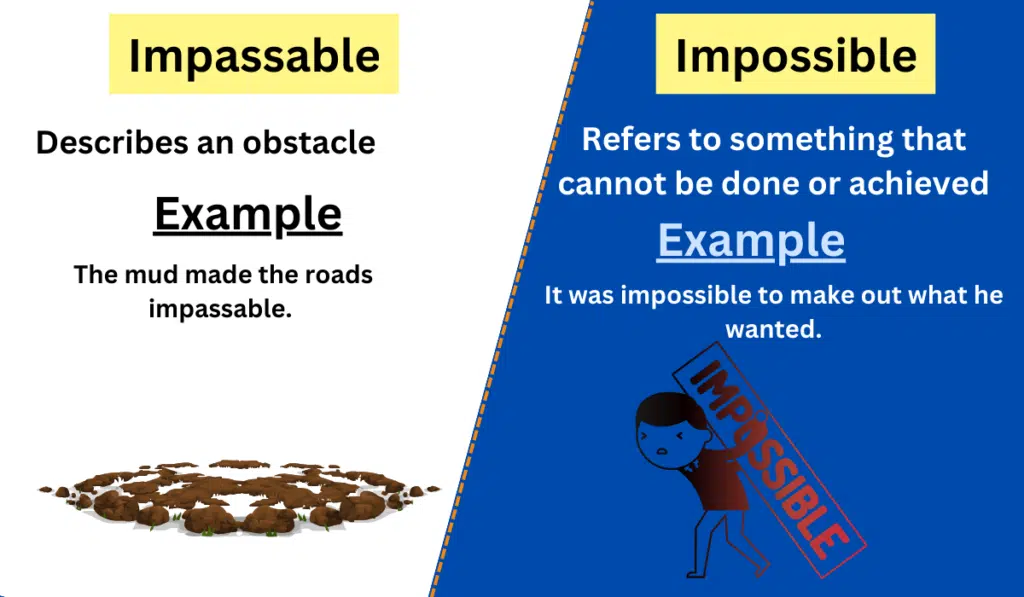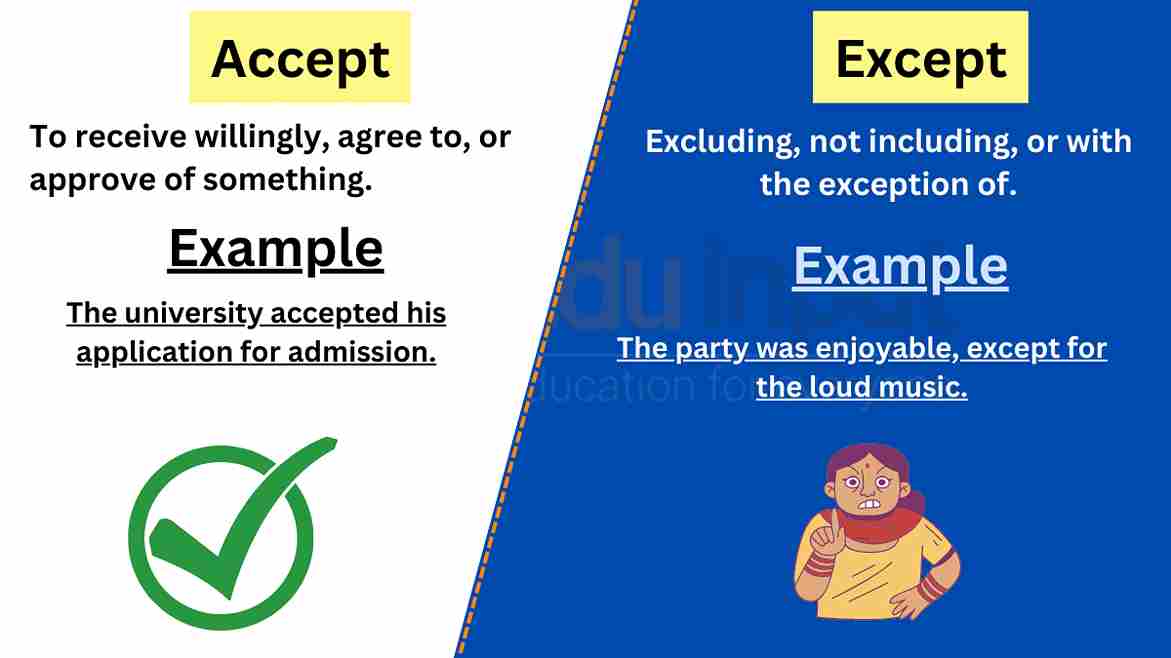Impassable vs. Impossible-Difference between and example
Within the labyrinthine realm of language, where words intertwine and meanings converge, “impassable” and “impossible” emerge as distinct entities, each carrying its own unique essence.

While these terms may appear synonymous at first glance, their true nature reveals contrasting nuances that set them apart.
In this article, we embark on a linguistic journey to unravel the depths of “impassable” and “impossible,” dissecting their definitions, contexts, and applications.
By discerning their disparities, we can wield these words with precision, accurately conveying the intended message.
Join us as we navigate through the intricacies of language and explore the difference between ‘impassible’ and ‘impossible.”
Meanings and Examples
Impassable Definition
Definition: “Impassable” describes a condition or obstacle that is impossible to pass through, cross, or navigate. It suggests a state of being blocked, inaccessible, or impenetrable.
Examples of Impassible
- The heavy snowfall made the roads impassable, forcing the authorities to close them temporarily.
- The river’s turbulent waters rendered it impassable for even the most experienced swimmers.
- The hikers had to turn back as they encountered an impassable cliff along the trail.
Impossible Definition
Definition: “Impossible” refers to something that cannot be done or achieved due to being contrary to the laws of nature, reason, or practicality. It implies an outcome or task that is beyond the realm of possibility.
Examples of Impossible
- It is impossible to travel faster than the speed of light according to current scientific understanding.
- Completing the entire project within a day’s time frame is simply impossible given the scope and complexity.
- Her ability to juggle numerous responsibilities simultaneously seemed almost impossible to others.
Difference between Impassible and Impossible
| Category | Impassable | Impossible |
| Meaning | Describes an obstacle or condition that cannot be crossed | Refers to something that cannot be done or achieved |
| Example | “The heavy snowfall made the roads impassable.” | “It is impossible to travel faster than the speed of light.” |
| Usage | Referring to blocked, inaccessible, or impenetrable situations | Conveying an outcome or task beyond the realm of possibility |
| Context | Road conditions, physical barriers | Scientific, practical, or logical limitations |
Usage in a Paragraph
As the mountaineers advanced towards the peak of the formidable mountain, their progress was abruptly halted by an unexpected obstacle—a vast expanse of rugged terrain covered in thick vegetation.
The dense foliage rendered the path impassable, with no visible trail to guide their way. Despite their determination, they reluctantly conceded that attempting to navigate through the impassable terrain would jeopardize their safety.
With heavy hearts, they retraced their steps, seeking an alternative route to conquer the summit.
In the realm of scientific exploration, an astrophysicist pondered the mysteries of the universe.
With boundless curiosity, she delved into the intricacies of space-time and the nature of cosmic phenomena.
Although she yearned to unravel the enigma of time travel, she acknowledged that it remained impossible, as current scientific understanding deemed it beyond the realm of possibility.
Undeterred, she redirected her focus towards advancing our understanding of other cosmic wonders, pushing the boundaries of knowledge within the feasible realms of exploration.
While “impassable” and “impossible” may share some surface similarities, they represent distinct concepts with different applications. “Impassable” denotes a condition or obstacle that is impossible to pass through, cross, or navigate, emphasizing blocked or inaccessible pathways.
On the other hand, “impossible” refers to something that cannot be done or achieved due to being contrary to the laws of nature, reason, or practicality, indicating outcomes or tasks beyond the realm of possibility.
By grasping the nuances of these terms, we can effectively communicate and express the precise nature of obstacles or limitations. Let us navigate the labyrinth of language with clarity, embracing the power of accurate expression.






Leave a Reply